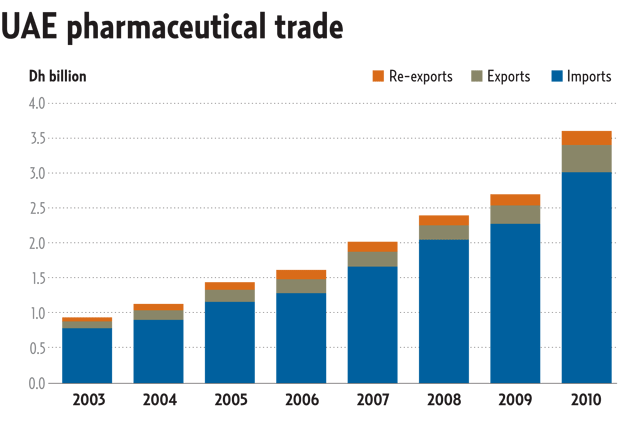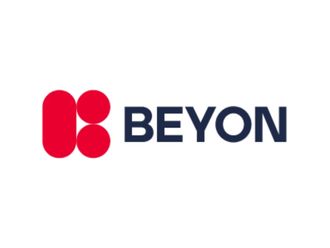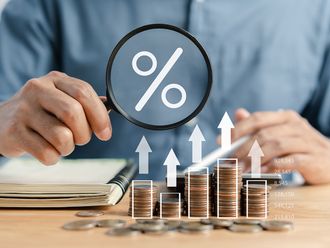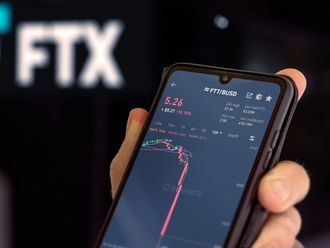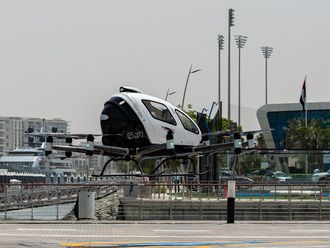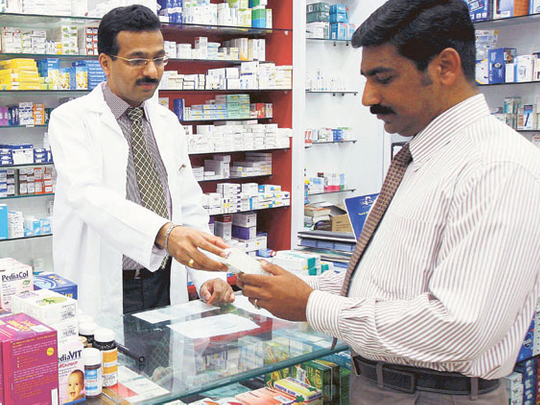
Dubai: Lifestyle changes of the general populace have proved to be a shot in the arm for the UAE's pharmaceutical industry which is benefiting from a strong health care infrastructure and the highest per-capita medicine expenditure in the Middle East, according to a report by the Dubai Chamber of Commerce and Industry.
Exports of medicines have quadrupled from Dh100 million in 2003 to Dh400 million last year.
"Since 2003, imports of pharmaceutical products have risen from Dh800 million to Dh3 billion in 2010," the report says.
The market continues to lure manufacturers and traders to the region.
Industry experts say that there is potential for further growth in the pharmaceutical products sector in the light of the changing lifestyle dynamics in the region, which is now based on an increasingly Westernised disease profile with factors such as obesity.
Survey findings
A recent Dubai Household Health Survey (DHHS) jointly conducted by the Dubai Health Authority (DHA) and the Dubai Statistics Centre (DSC) that covered 5,000 households showed that approximately 80 per cent of Dubai residents do not get enough exercise to be considered healthy. According to the experts, the areas of growth for manufacturers include targeting the overweight and obese residents of the UAE.
Other diseases associated with a relatively sedentary lifestyle such as an increase in heart disease and diabetes will likely remain the mainstay of growth for patented drug manufacturers. New areas for pharmaceutical product growth could also include tapping the rising demand for medical tourism.
Also, increasing incomes and awareness lead to an increase in personal care. The rise in medical device sales that monitor health is also another area of potential growth. This, combined with the opening of pharmacies in grocery outlets, will stimulate the over-the-counter (OTC) market which may help manufacturers realise this opportunity quickly. Saly Aouda, a UAE- based pharmacist, told Gulf News that the strict measures that UAE implements to impose intellectual property law are behind the strong performance of the pharmaceutical sector in the UAE.
"Despite the limited size of the medicine market in the UAE and particularly Dubai, strict quality control has helped the sector to grow," she said.
It is also hoped that the further deepening of GCC market integration and the introduction of integrated healthcare insurance systems will boost the pharmaceutical trade in the long run. A lot remains to be harmonised between GCC states before the benefits become available to consumers.
Substantial investment in the healthcare sector such as the Dubai Healthcare City and DuBiotech projects will also encourage foreign direct investment in healthcare.
Drivers of growth
In the UAE and the wider GCC, growth prospects for the sector are amplified partly because of the population dynamic of an emerging yet sizeable growing middle income class. According to Economist Intelligence Unit forecasts, the GCC population will reach 53 million by 2020. As incomes rise, spending on health care typically rises as consumers tend to become more health-focused.
Aouda highlighted: "Dubai's lifestyle is somehow responsible for the higher degree of chronic diseases like diabetes, high blood pressure and heart disease."


